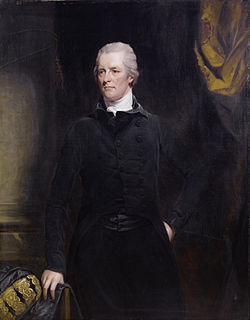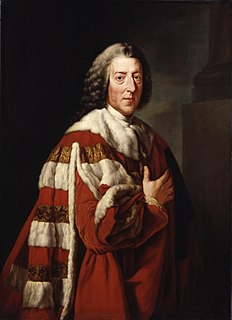A Quote by Zhuangzi
Man may rest in the eternal fitness; he may abide in the everlasting; and roam from the beginning to the end of all creation. He may bring his nature to a condition of ONE, he may nourish his strength; he may harmonise his virtue, and so put himself into partnership with God.
Related Quotes
He is not famous. It may be that he never will be. It may be that when his life at last comes to an end he will leave no more trace of his sojourn on earth than a stone thrown into a river leaves on the surface of the water. But it may be that the way of life that he has chosen for himself and the peculiar strength and sweetness of his character may have an ever-growing influence over his fellow men so that, long after his death perhaps, it may be realized that there lived in this age a very remarkable creature.
Whatever man may stand, whatever he may do, to whatever he may apply his hand - in agriculture, in commerce, and in industry, or his mind, in the world of art, and science - he is, in whatsoever it may be, constantly standing before the face of God. He is employed in the service of his God. He has strictly to obey his God. And above all, he has to aim at the glory of his God.
The great passion in a man's life may not be for women or men or wealth or toys or fame, or even for his children, but for his masculinity, and at any point in his life he may be tempted to throw over the things for which he regularly lays down his life for the sake of that masculinity. He may keep this passion secret from women, and he may even deny it to himself, but the other boys know it about themselves and the wiser ones know it about the rest of us as well.
I may not be funny. I may not be a singer. I may not be a damn seamstress. I may have diabetes. I may have really bad vision. I may have one leg. I may not know how to read. I may not know who the vice president is. I may technically be an alien of the state. I may have a Zune. I may not know Excel. I may be two 9-year-olds in a trench coat. I may not have full control of my bowels. I may drive a '94 Honda Civic. I may not “get” cameras. I may dye my hair with Hydrogen Peroxide. I may be afraid of trees. I may be on fire right now. But I'm a fierce queen.
It is a proverbial expression that every man is the maker of his own fortune, and we usually regard it as implying that every man by his folly or wisdom prepares good or evil for himself. But we may view it in another light, namely, that we may so accommodate ourselves to the dispositions of Providence as to be happy in our lot, whatever may be its privations.
This word "description" may be disconcerting when used to refer to what is generally called a translation. But when one wishes to render a verbal creation (as opposed to a didactic statement) from one language to another, he is confronted with two equally unsatisfactory choices. He may, according to his talents, elaborate a similar, but never identical creation, or he may describe that creation as completely as possible in his own language.







































